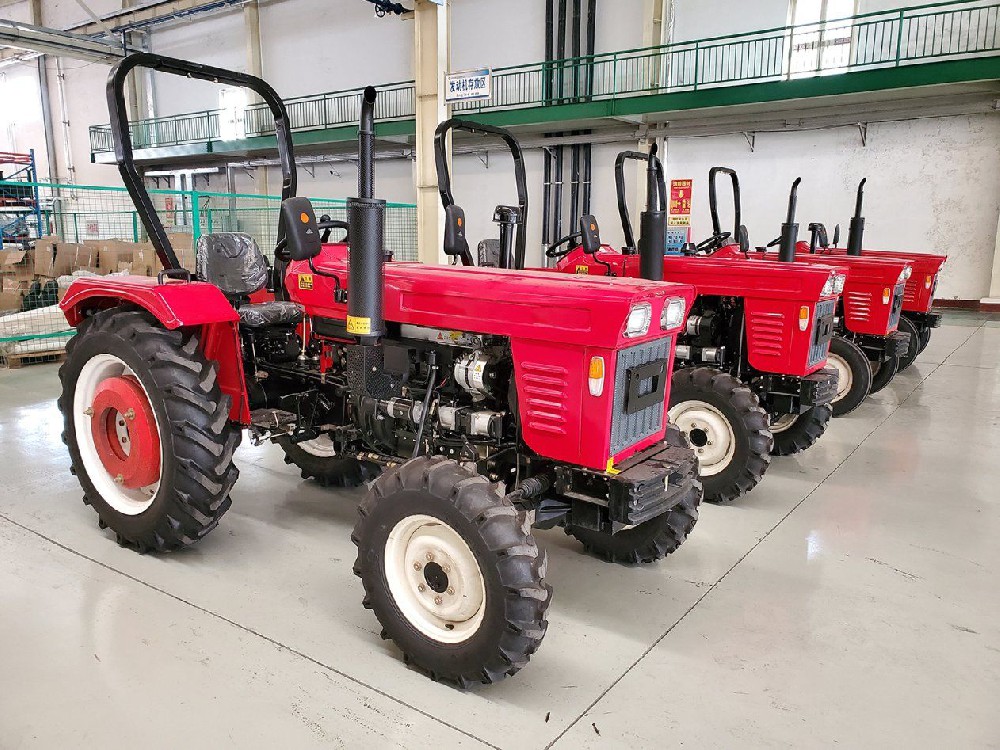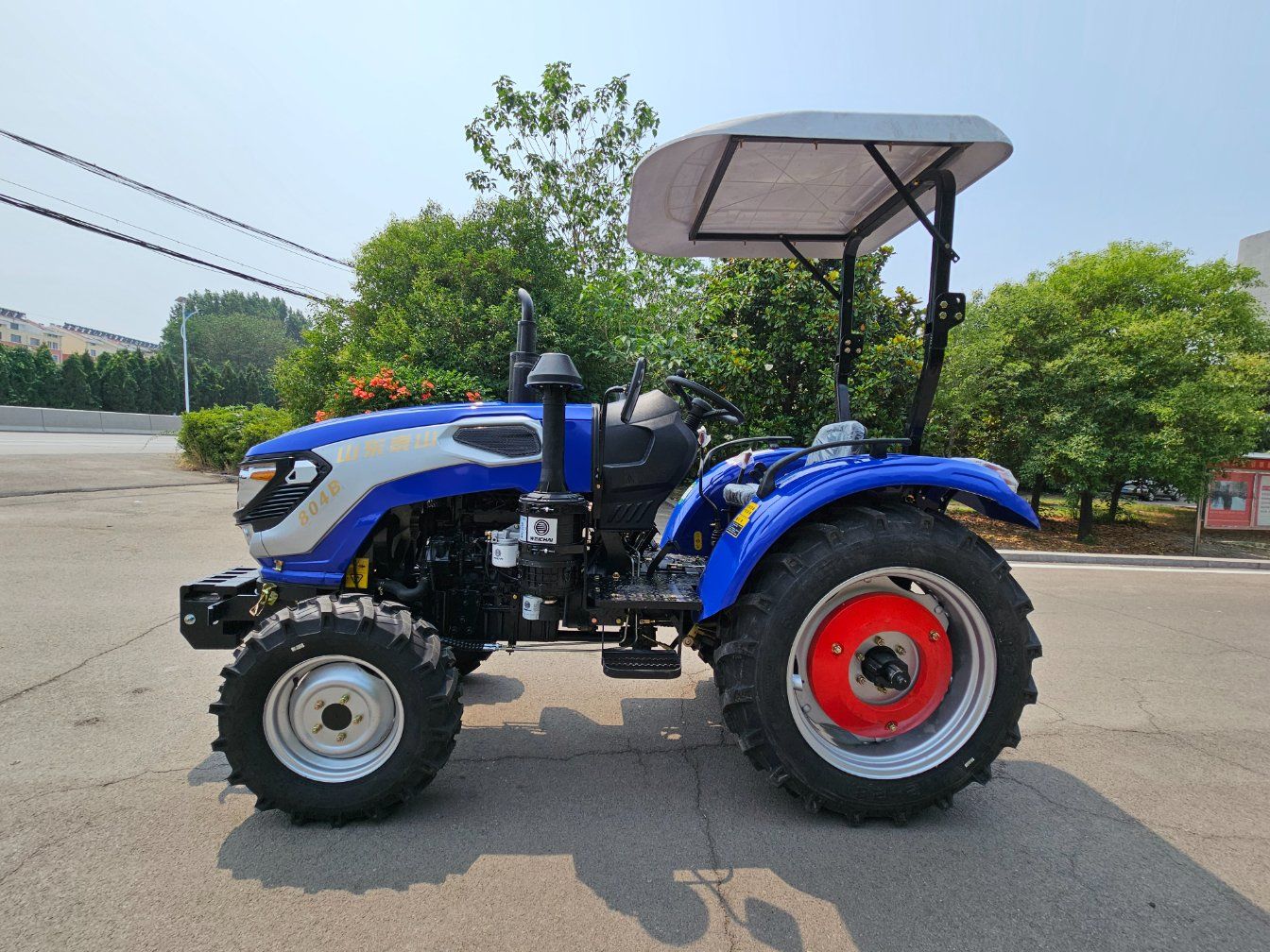Tractor: The Power Source of Agricultural Modernization
Tractors, as an indispensable tool in modern agricultural production, have become an important force in promoting agricultural mechanization and improving production efficiency. Since its first appearance at the end of the 19th century, tractors have undergone several technological innovations worldwide, from the initial steam power to the current efficient diesel engine. Tractors are no longer simply "agricultural machines", but rather the "engines" of modern agriculture, leading agricultural production towards a more efficient and refined path.
1、 The History and Development of Tractors
The origin of tractors can be traced back to the late 19th century, when agricultural production mainly relied on human and animal labor, with high labor intensity and low production efficiency. In 1892, John Frederick Hurt of the United States invented the first steam driven tractor. Although its efficiency and practicality were limited, this invention laid the foundation for the development of tractors.
After entering the 20th century, with the emergence of internal combustion engines, tractors began to transition from steam power to internal combustion engine power. In the 1920s, diesel engines began to be applied to tractors, greatly improving their power and work efficiency. With the continuous innovation of technology, tractors have gradually developed from their initial single function to multifunctional machinery with multiple operational capabilities, widely used in various agricultural processes such as cultivation, sowing, fertilization, and spraying.
2、 The role of tractors in modern agriculture
Increase productivity
The most direct function of tractors is to improve agricultural production efficiency. Traditional agricultural production often relies on a large amount of labor, and the introduction of tractors has enabled the mechanization of labor-intensive tasks such as plowing, soil turning, and sowing. This not only greatly reduces labor intensity, but also shortens the production cycle, allowing farmers to complete more work in a shorter amount of time.
Promote agricultural mechanization
Tractors are an important component of agricultural mechanization, which not only enables single agricultural operations to be automated, but also drives the continuous development of supporting facilities. For example, modern tractors can complete various agricultural tasks by installing different auxiliary tools, such as seeders, harvesters, spray, etc., so as to realize the whole process mechanization of agriculture.
Improve land utilization efficiency
Due to the efficiency of tractors, the cultivation methods of land have also changed. Traditional agricultural production is often constrained by factors such as climate and labor, but with the use of tractors, agricultural production has become more stable. Through refined farming techniques, land resources can be better utilized and land productivity can be improved.
Improving the livelihoods of farmers
The use of tractors has liberated farmers' hands, reduced the intensity of physical labor, and improved their quality of life. Farmers no longer need to work long hours in the fields, and the use of tractors allows them more time to manage other affairs and even engage in other non-agricultural side businesses.
3、 Technological progress of tractors
With the continuous development of technology, modern tractors are also constantly evolving. Here are some major technological advancements:
Improvement of power system
Early tractors often used gasoline engines, but with the development of technology, diesel engines have become mainstream due to their high efficiency and energy-saving characteristics. Nowadays, many modern tractors are equipped with efficient and low emission engine systems, reducing environmental pollution.
The application of intelligent technology
Currently, tractors are gradually developing towards intelligence. Through GPS positioning technology and auto drive system, modern tractors can realize automatic navigation and operation, greatly improving the operation accuracy and efficiency. The application of these intelligent technologies not only reduces labor costs, but also improves the sustainability of agricultural production.
Accuracy of homework and environmental requirements
Modern tractors have not only greatly improved their power, but also greatly enhanced their operational accuracy. For example, precision sowing and fertilization techniques can adjust the amount of seeds or fertilizers used according to the specific conditions of the soil, thereby maximizing yield and reducing resource waste. In addition, the strengthening of environmental regulations has also prompted tractor manufacturers to improve their products, reduce emissions, and minimize their impact on the environment.

4、 The future development trend of tractors
With the continuous growth of global agricultural demand and increasing emphasis on environmental protection, the future of tractors will tend towards greater intelligence, environmental friendliness, and efficiency. In the future, tractors will pay more attention to automated operations, reduce reliance on human labor, and also adopt more green energy and technology to reduce carbon emissions and promote sustainable agricultural development.
Automation and Intelligence
Future tractors will be more intelligent and capable of achieving fully automated operations. Through data collection, sensors, and AI technology, tractors can accurately determine soil conditions, crop growth, and weather changes, achieving precision agriculture.
The application of green energy
With the increasing pressure on environmental protection, tractors will gradually adopt green energy such as electricity and hydrogen to replace traditional fossil fuels and reduce environmental pollution.
Internet of Things and Big Data
The Internet of Things (IoT) and big data technology will be widely applied in tractors to help farmers monitor agricultural production status in real time, make timely adjustments, and improve the level of refined management of agricultural production.
5、 Conclusion
Tractors, as an important tool for agricultural production, have undergone significant development and become the core force of modern agricultural mechanization. It not only improves production efficiency and reduces labor intensity, but also promotes the development and transformation of global agriculture. With the continuous advancement of technology, the functions of tractors will become more diversified and intelligent, and future agricultural production will be more precise, efficient, and sustainable. As a trusted assistant to farmers, tractors will continue to contribute to the development of global agriculture.

5. Get Your Personalized Solution Now
→ Call the selection hotline: (also supports accessory customization inquiries).









